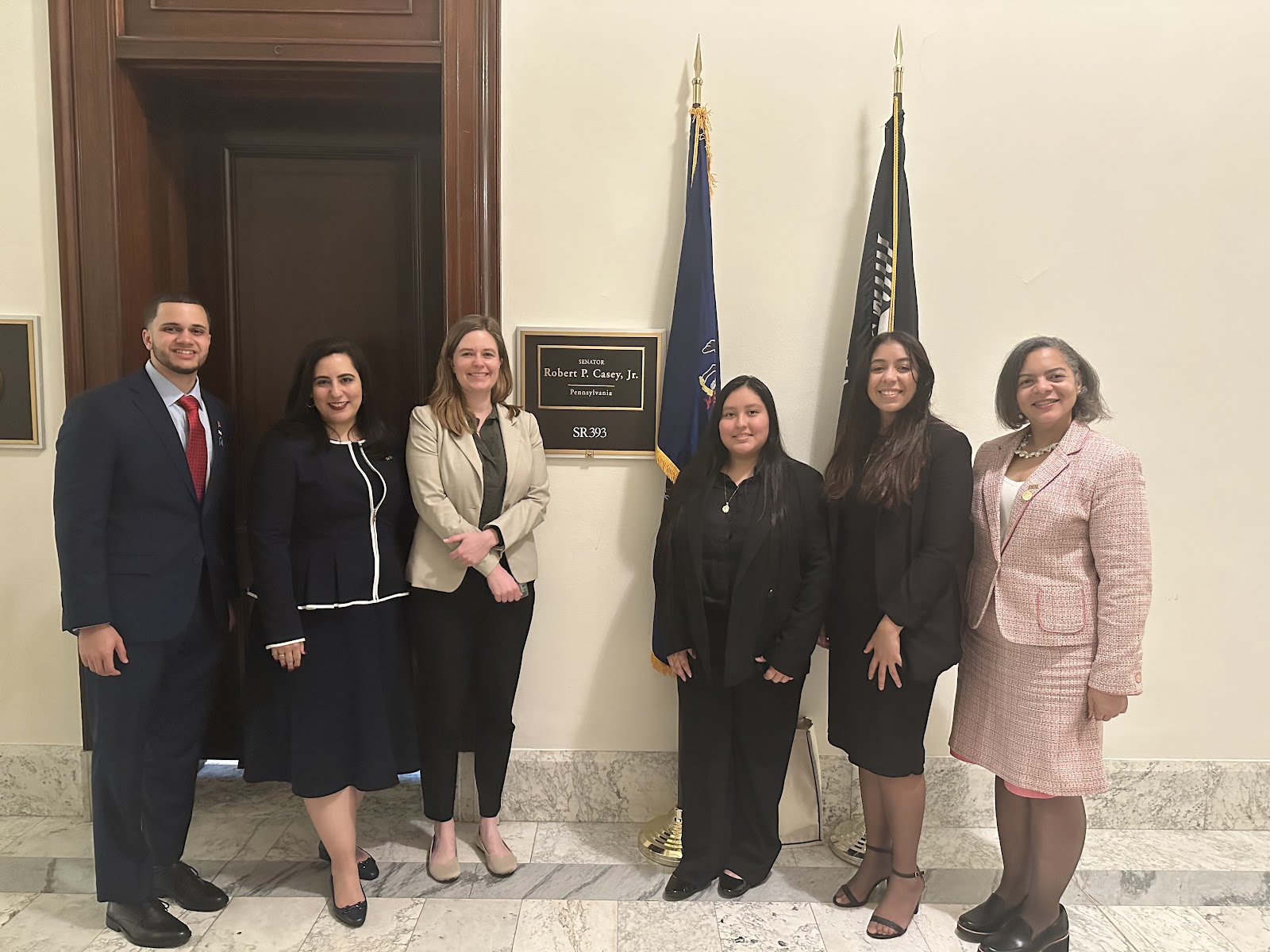
Stephanie Moreno-Rivera ’26 is making an impact through her involvement with Lehigh University’s chapter of the Society of Hispanic Professional Engineers (SHPE).
The national organization, which is celebrating its 50th anniversary in 2024, has more than 300 active student and professional chapters that provide resources, training, and mentorship to members, while striving to increase representation of the Hispanic community within STEM fields. The Lehigh chapter supports Hispanic STEM majors through professional guidance, workshops, and hands-on projects.
In April, Moreno-Rivera took part in SHPE’s Hill Day in Washington, D.C. The inaugural event drew nearly 70 members to Capitol Hill to advocate for Hispanics in STEM. The group engaged in discussions with members of Congress and their staff, “focusing on bridging the workforce gap by leveraging Hispanic talent to meet the demands of STEM industries, emerging technologies, and national security interests.”
“Within my group were professionals from Rhode Island, Massachusetts, and Delaware and another student who attends Rutgers and is from New Jersey,” Moreno-Rivera says. “We met with staffers from our region and we represented our field of engineering, our companies and universities, as well as our state.”
During Hill Day, participants emphasized the importance of revising eligibility criteria for STEM opportunities to include nonprofits like SHPE as primary partners for funding. “This adjustment would ensure broader access and support for underrepresented communities,” Moreno-Rivera says. The participants also urged the formal recognition of Hispanic-Serving Institutions (HSIs) as distinct entities in legislative language, separate from Minority-Serving Institutions (MSIs).
According to SHPE, the event also highlighted the organization’s commitment to fostering pathways for student achievement from K-12 and enhancing accessibility to professional development initiatives. By working directly with the private and public sectors, SHPE aims to create a “superhighway” of services that attract and retain Hispanic students in STEM fields from an early age throughout their professional careers.

“Being part of SHPE has been instrumental in my journey,” says Moreno-Rivera, who is majoring in mechanical engineering. That journey began with a desire to attend a strong engineering program with a beautiful campus to balance her studies.
“I chose Lehigh University because it is a widely respected institution for its interdisciplinary programs and strong academic reputation,” she says. “The gorgeous campus attracted me. It was extremely important to me that, while pursuing a rigorous degree, I would have a green environment to turn to, especially when I come from such a chaotic city like Philadelphia.”
Early in her Lehigh career, Moreno-Rivera also connected with organizations including the Student Access & Success (SAS) program, which helped her navigate the challenges of being a minority student at a predominantly white institution, or PWI (59% of Lehigh’s undergraduate students are white). The Lehigh University Student Scholars Institute (LUSSI) and the Rapidly Accelerated Research Experience (RARE), she says, have also been vital to her success.
“LUSSI has created a safe place where I can go to seek refuge or ask for help,” says Moreno-Rivera, who initially had concerns about not having a support system at a PWI. “LUSSI made me forget that irrational fear. They make sure I have a voice here at Lehigh.”
RARE has opened doors to research opportunities in two labs led by mechanical engineering and mechanics faculty members: Through Lehigh’s STEM-SI program, she spent last summer collaborating on an educational module about fish schooling for Lehigh’s CHOICES engineering outreach program with Associate Professor Keith Moored. This summer, she’s working with Assistant Professor Parisa Khodabakhshi to improve a method for organizing complex data used in engineering design.
And through her advocacy and involvement with SHPE, Moreno-Rivera is committed to ensuring that Hispanic and minority students have greater access to STEM opportunities.
“This is about making a change and supporting those who come after me,” she says.
Student writer Emma Eggleston ’24 contributed to this story.

